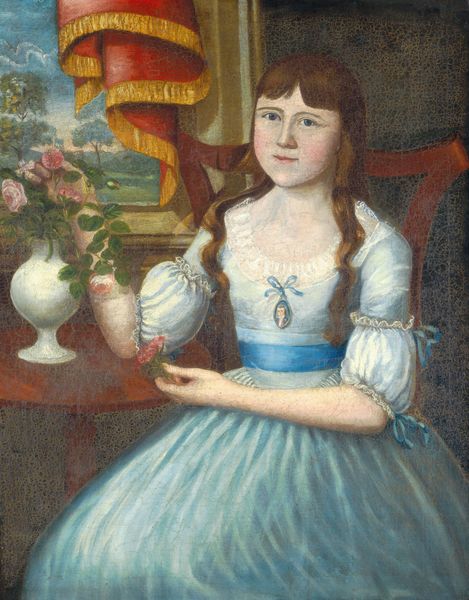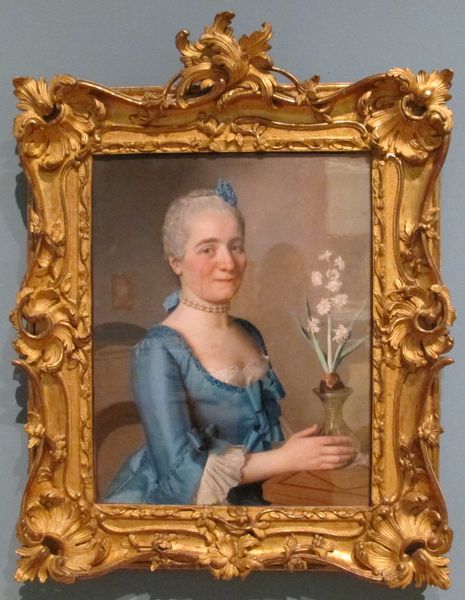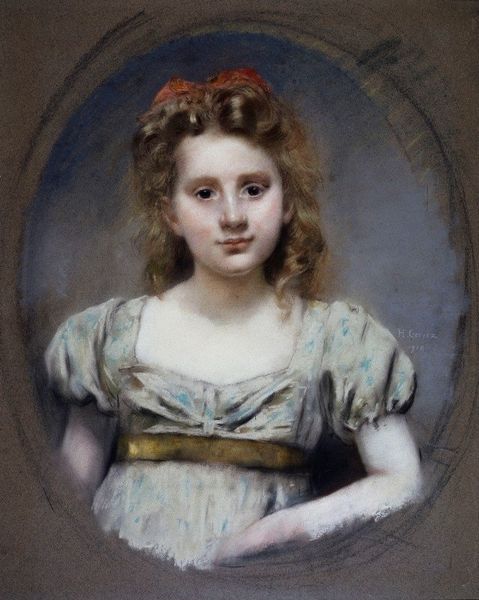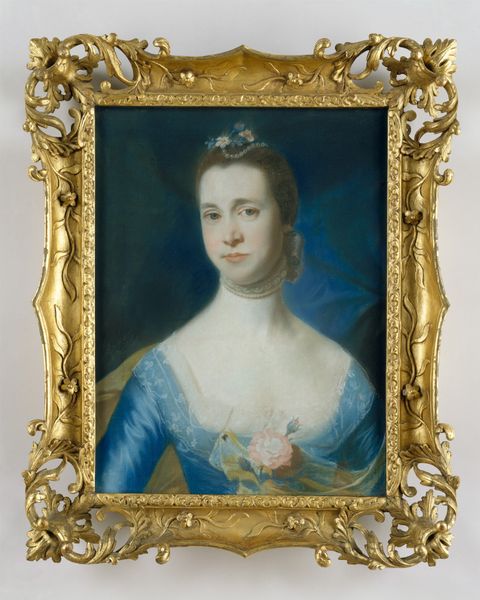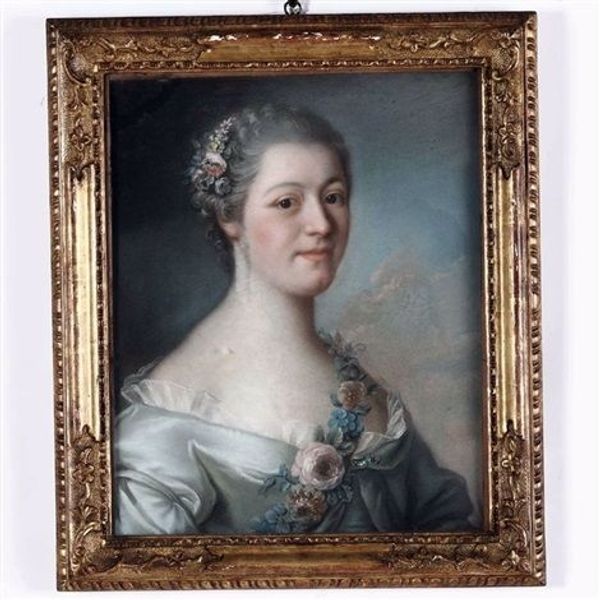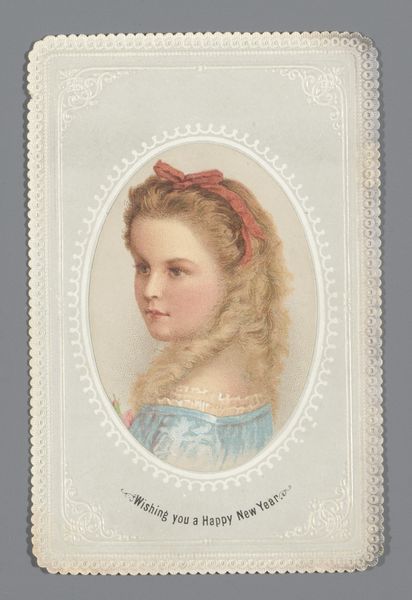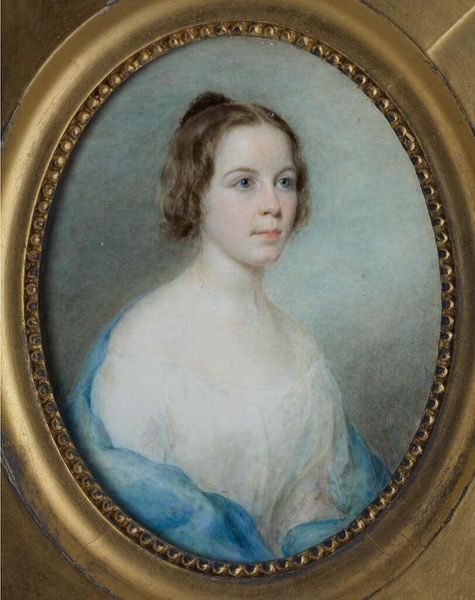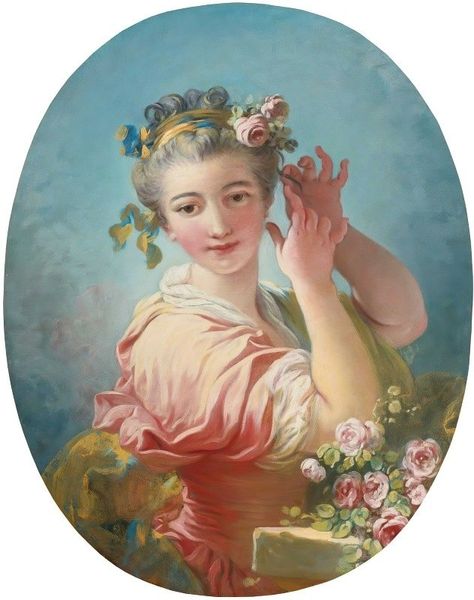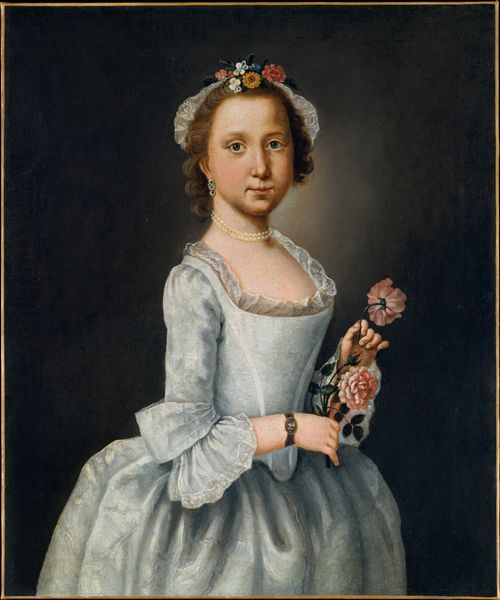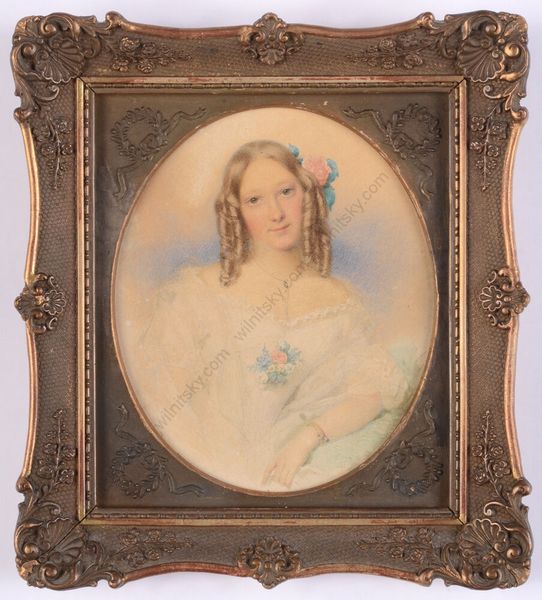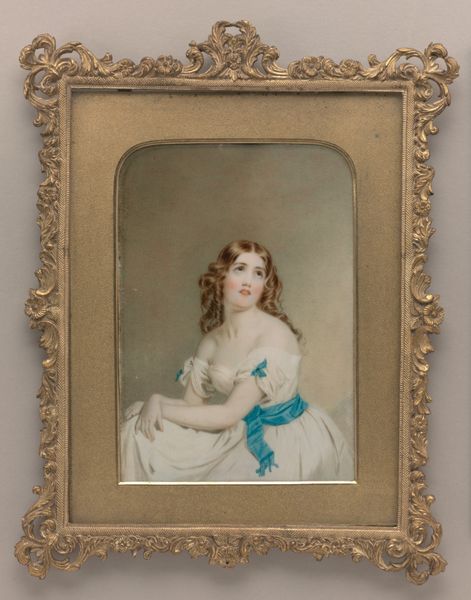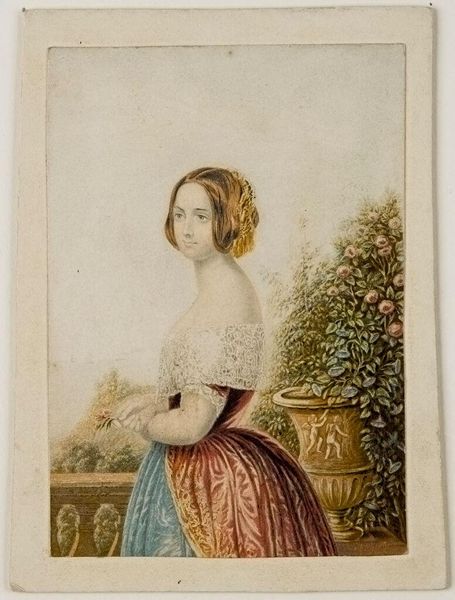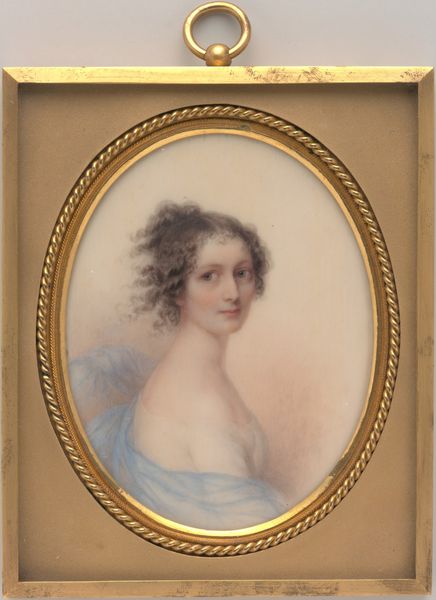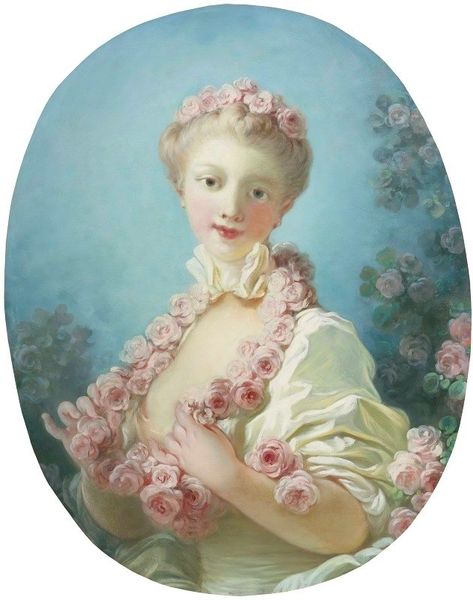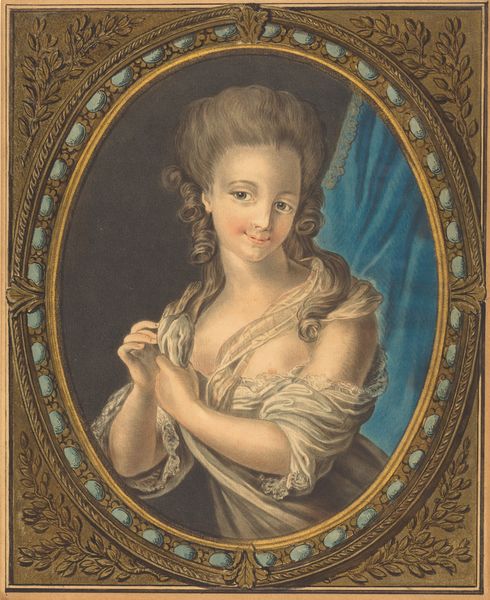
Girl with a Hyacinth Flower Pot (possibly a portrait of Lady Caroline Russell, later Duchess of Marlborough) 1760
0:00
0:00
jeanetienneliotard
Rijksmuseum, Amsterdam, Netherlands
painting, pastel
#
portrait
#
painting
#
pastel
#
academic-art
#
portrait art
#
rococo
Copyright: Public domain
Jean-Étienne Liotard made this portrait in pastel, possibly of Lady Caroline Russell, sometime in the mid-18th century. Liotard was one of the most in-demand portraitists in Europe, particularly among the British aristocracy. Portraits were powerful statements of social position, announcing one’s presence on the world stage. The delicacy of Liotard’s pastel technique, combined with the careful naturalism of his likenesses, was particularly suited to his wealthy clientele. While portraits had long been a signifier of status, Liotard's focus on naturalism helped usher in a new way to perceive and present the self. We, as art historians, might look to sources like letters, diaries, and financial records to understand the social contexts of portraiture in this period. We might ask: What did it mean to have one's portrait painted? How did institutions like the Royal Academy shape artistic production and taste? And what was the public role of art in 18th century Europe? By considering these questions, we can begin to understand the full significance of this beautiful portrait.
Comments
No comments
Be the first to comment and join the conversation on the ultimate creative platform.
